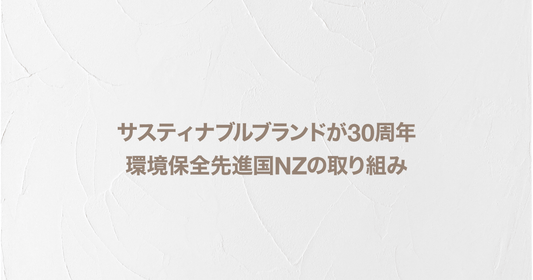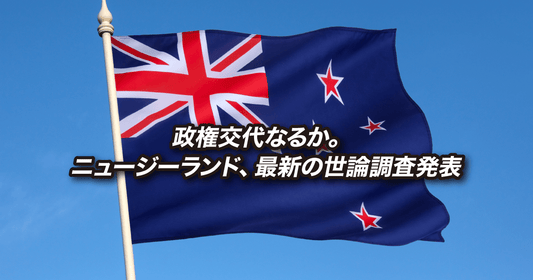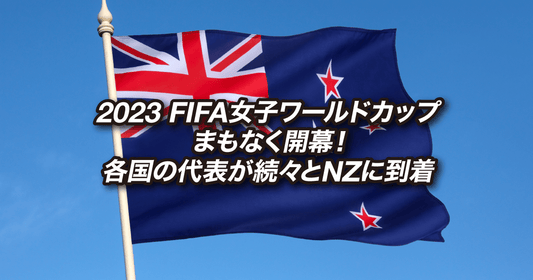New Zealand is known as a leader in environmental conservation, and various initiatives are being carried out across the nation, including the use of renewable energy, reducing waste, and protecting wildlife.
Furthermore, from a business perspective, many companies are now tackling environmental issues, believing that in today's world, doing something positive not only for consumers but also for the planet is the only way to sustain their business, rather than just maintaining their competitiveness and surviving in the market.
Ecostore celebrates 30th anniversary
Ecostore, a globally renowned sustainable brand that New Zealand is proud of, celebrated its 30th anniversary with a special feature on national television.
Ecostore was founded in 1993 by Malcolm and Melanie Land. In 1993, most people were not yet familiar with the term "sustainability," and before "environmentally friendly products" were gaining attention. Ecostore is a brand that has been making detergents and soaps that are considerate of both people and the environment since then.
The idea came from Malcolm's grandmother, who worked as a cleaner at a school. Seeing her hands always getting rough from detergent, he wondered if he could create a more gentle product.
Ecostore's mission is to provide products that can clean your home and protect the environment while putting people's health first. They are taking various measures such as eliminating disposable plastic containers, refilling products at stores, collecting bottles, and developing alternative packaging to plastic.
Developing sustainable aviation fuel
Air New Zealand and the New Zealand Government have announced further joint funding for research into domestic production of Sustainable Aviation Fuel (SAF).
Sustainable Aviation Fuel (SAF) is a type of aviation fuel that can be sustainably produced. SAF is made from agricultural and forestry waste, biomass-derived raw materials, used cooking oil, waste from local governments and ordinary households, etc. By not using fossil-derived raw materials, it has attracted attention as a major contribution to reducing carbon dioxide emissions.
Carbon dioxide emitted from airplanes is said to account for 2% to 3% of all carbon dioxide emissions, and reducing it is a major issue for the aviation industry. Climate change is progressing faster than expected, and immediate action is required, so Air New Zealand plans to inject an additional budget of about 130 million yen and the New Zealand government plans to inject about 650 million yen.
Making the visitor economy sustainable
Training programs to strengthen sustainability were held for businesses providing services related to the visitor economy in Waiheke Island, also known as the Wine Island, a popular tourist destination near Auckland, and Great Barrier Island, where beautiful native forest walks can be enjoyed. The programs are supported by government agencies that support the cultural sector, as well as national agencies such as the Ministry of the Environment and the Ministry of Economy, Trade and Industry.
The visitor economy is a market that includes not only tourists, but also people who visit New Zealand for all kinds of reasons, such as visiting friends and family, business purposes, etc. It is essential for local businesses to develop a market that takes into consideration the impact on the environment, local areas, and natural resources.
In order to reduce carbon emissions in the visitor economy and mitigate the impact of climate change, operators are expected to gain the ability to tackle various challenges through training programs and build systems that enable them to take long-term strategic approaches.
People visiting New Zealand are also demanding more sustainable services, and this initiative will continue to be carried out across the country.





